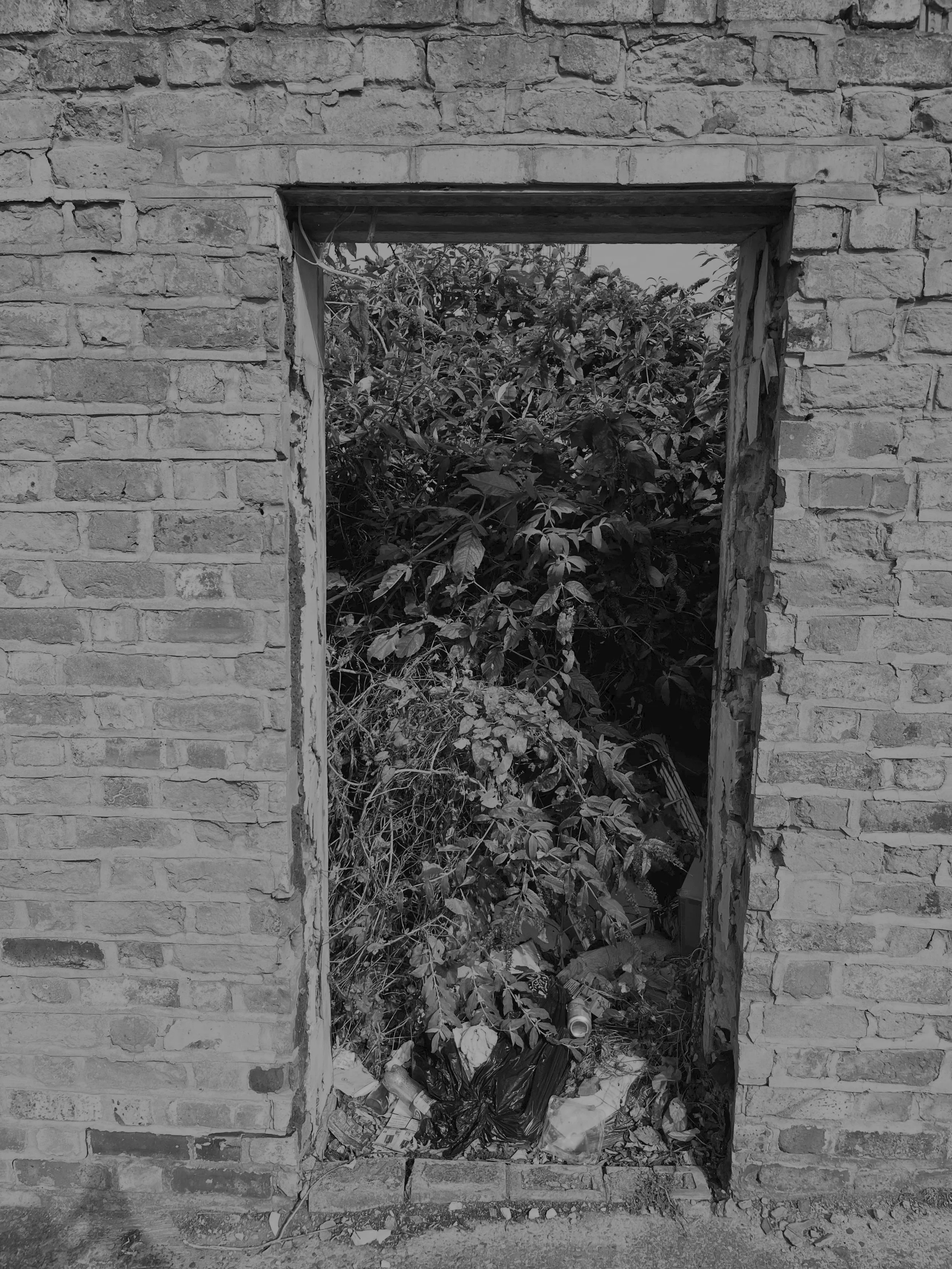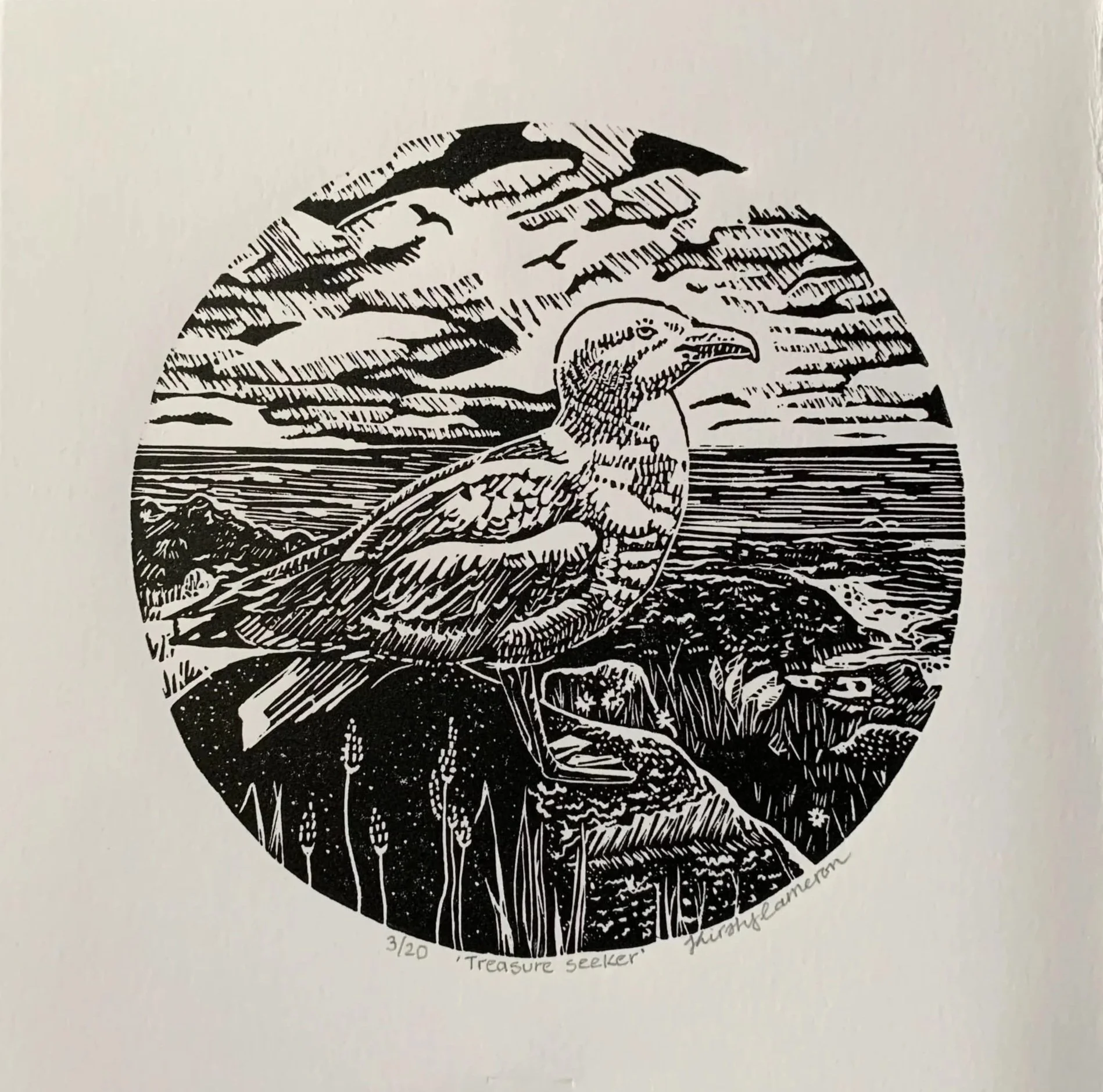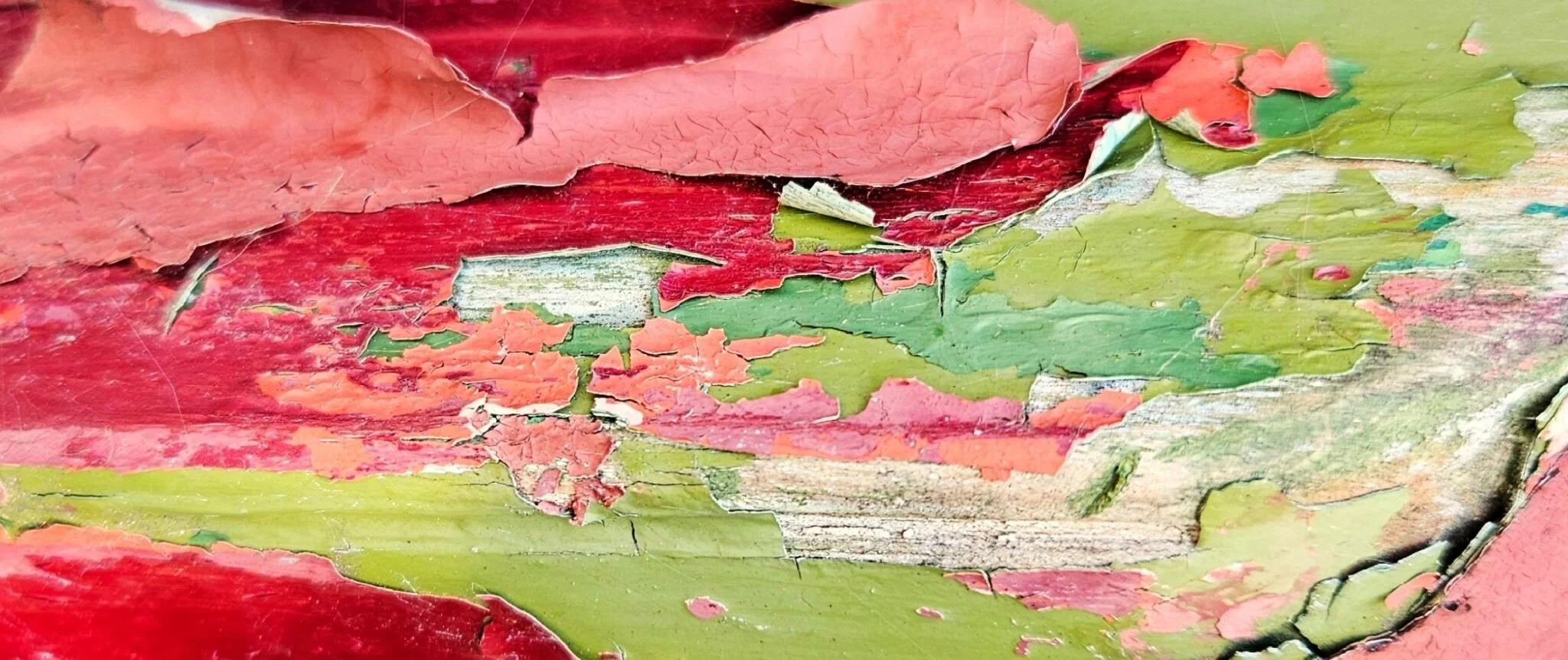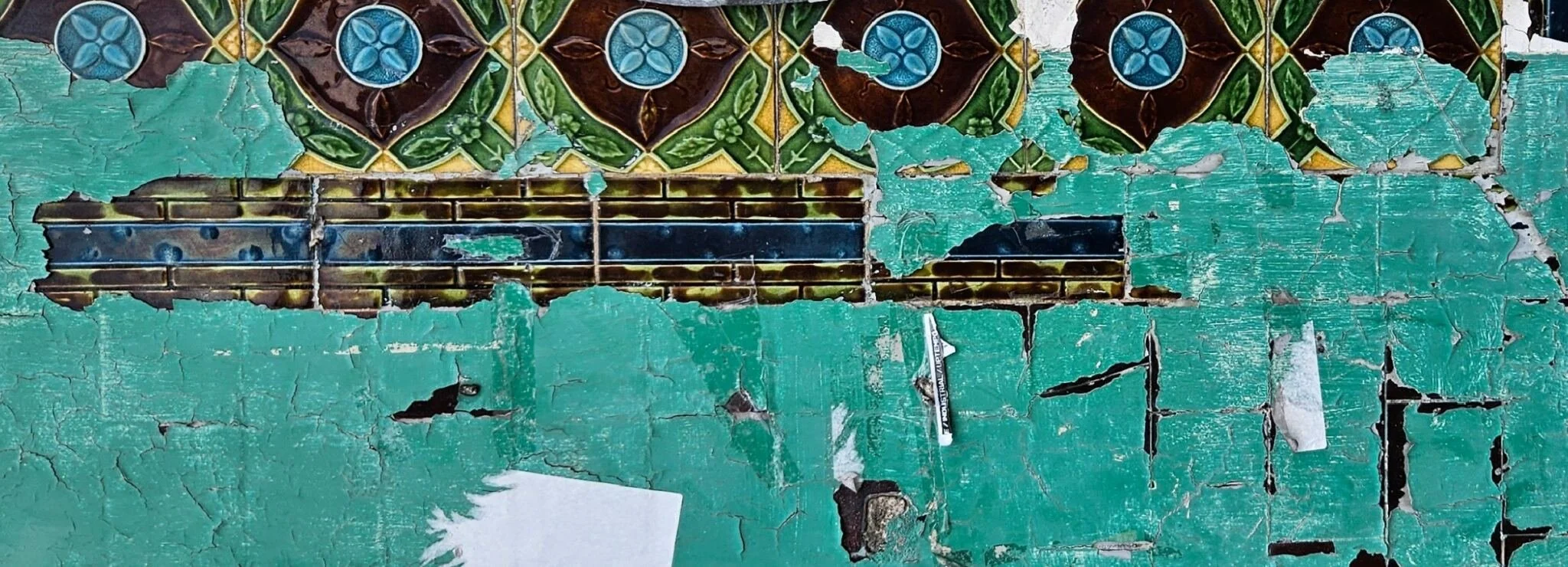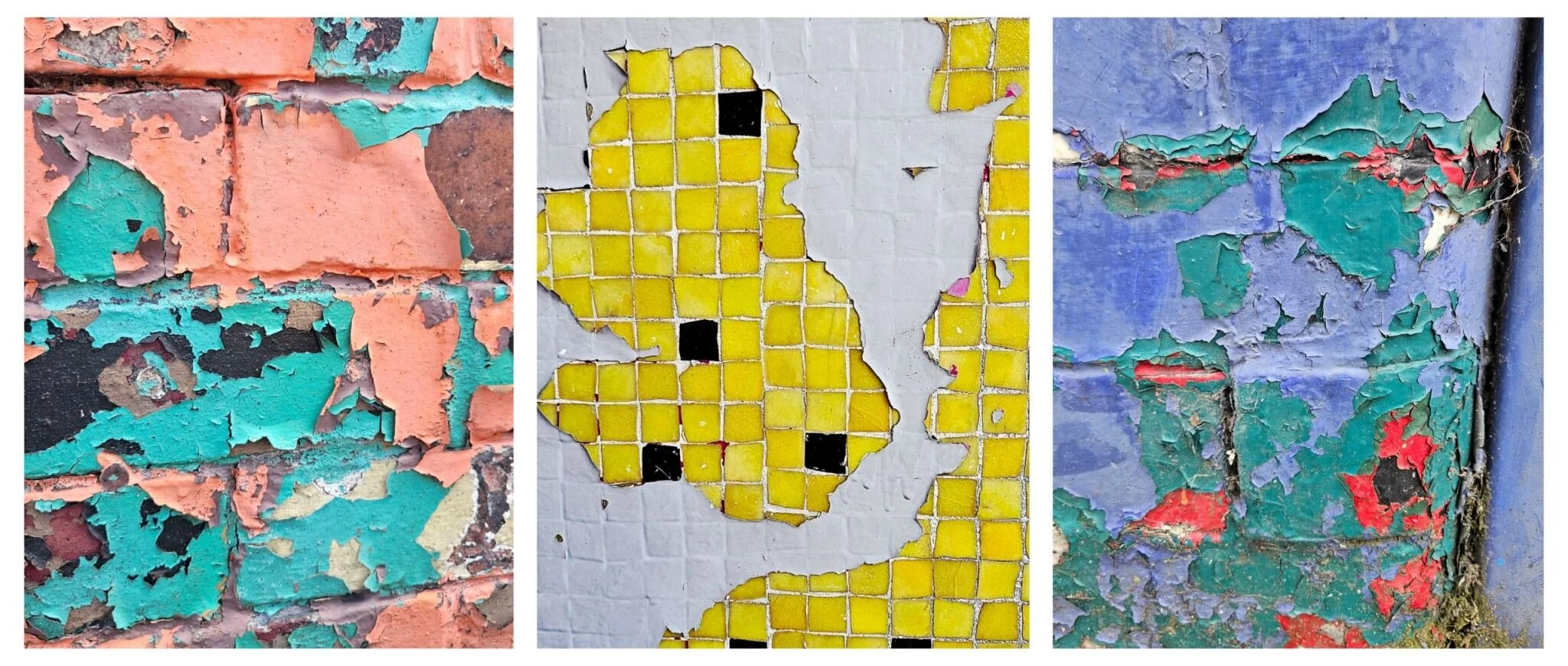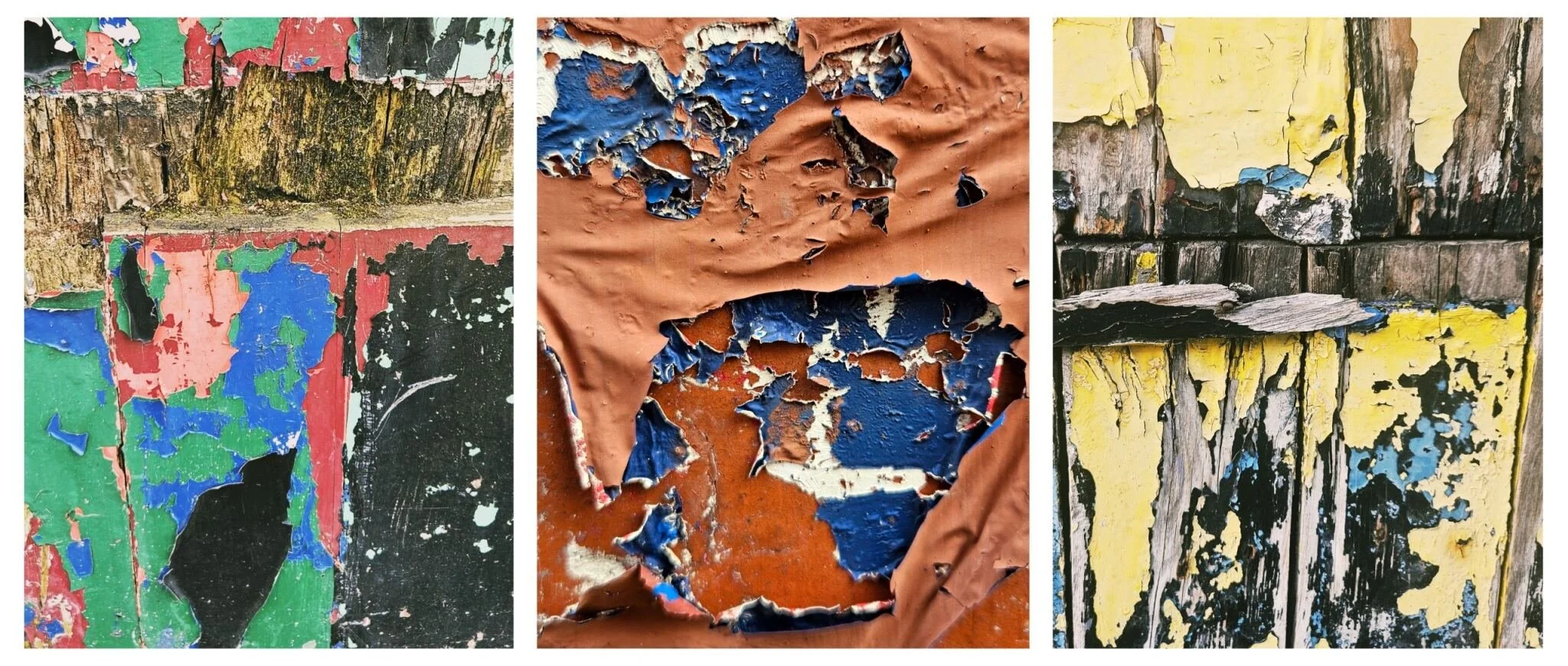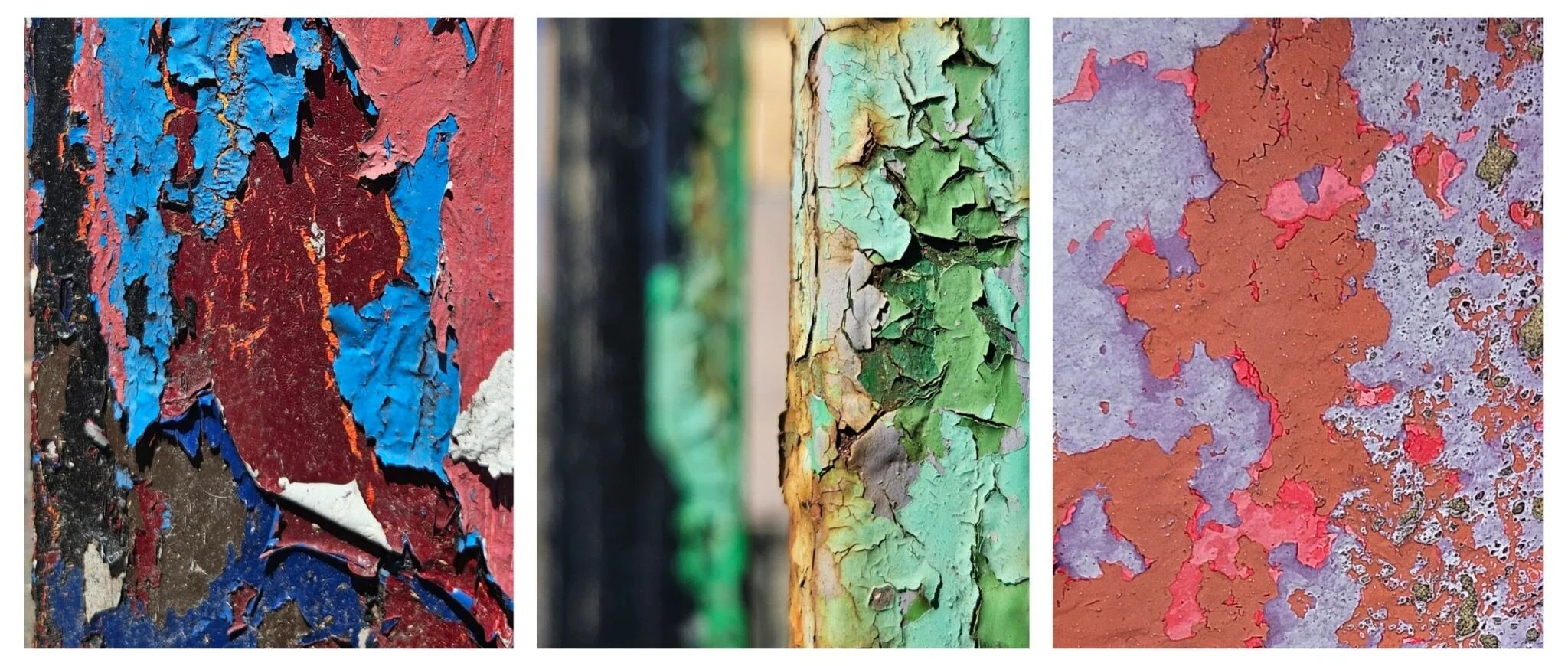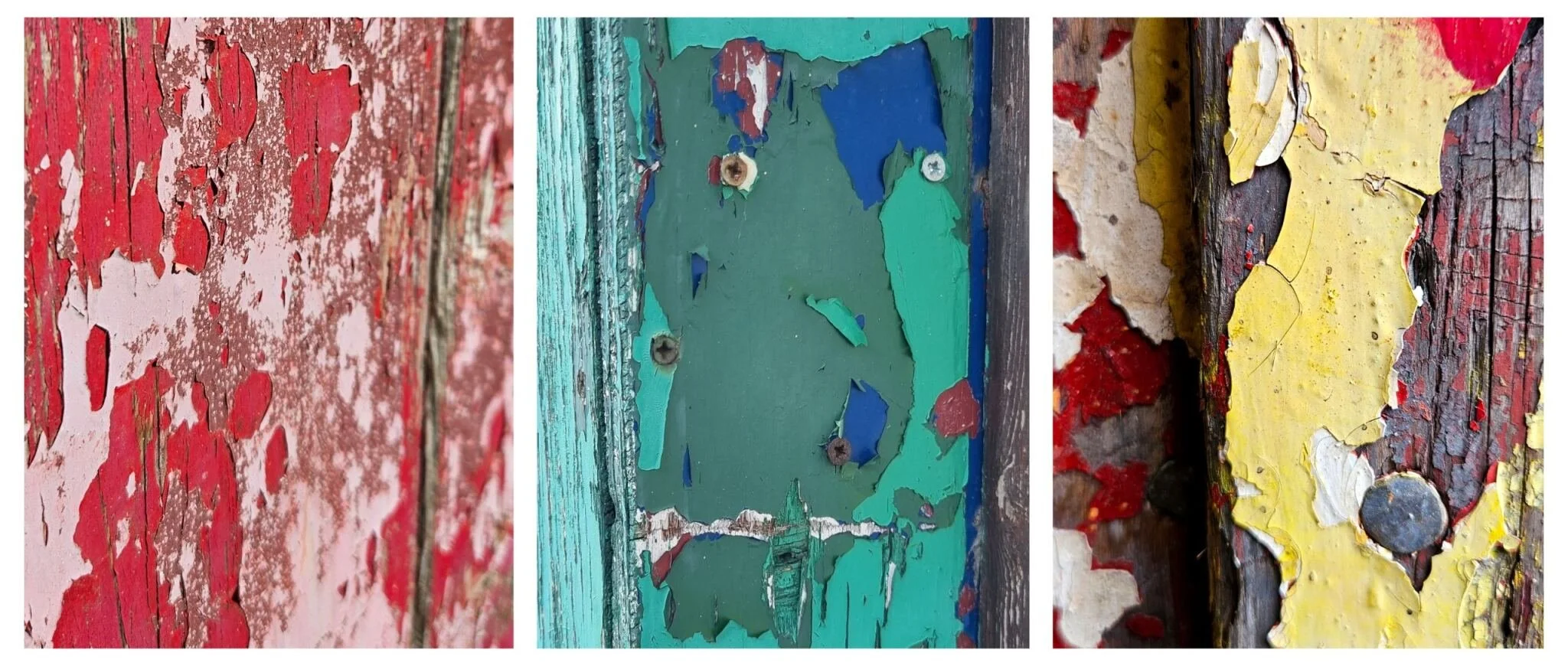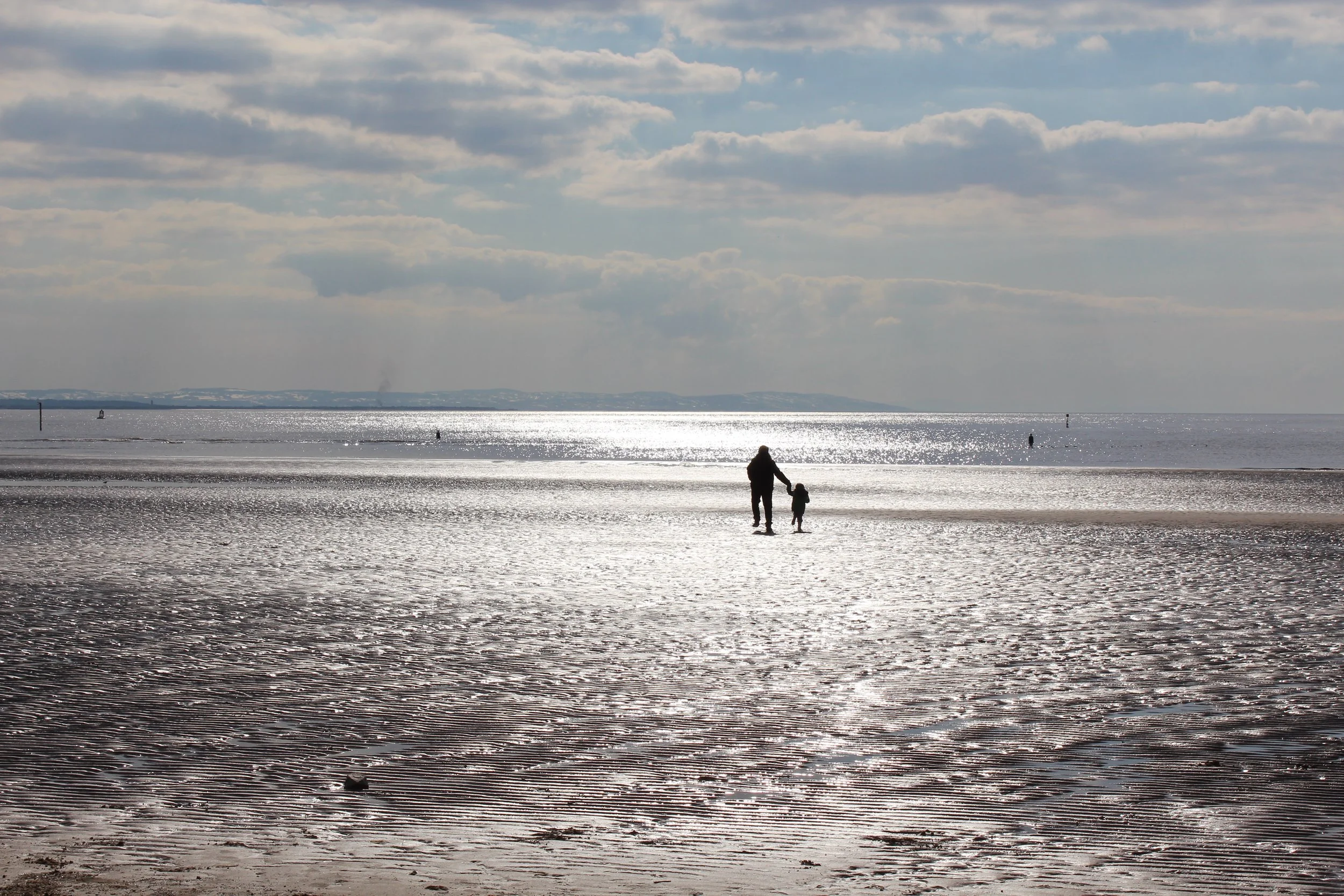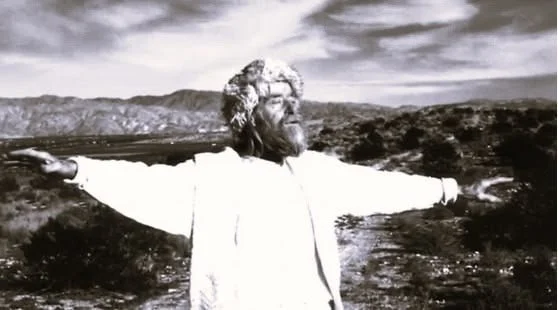Science & Magic | 9
I was thinking about fate the other day. Not the grand, operatic kind, but the quiet, almost mundane sort that hinges on the smallest of chances. A misplaced set of keys, a sudden downpour, the decision to turn left instead of right - you know the tiny, seemingly insignificant moments that, in hindsight, appear to be the load-bearing walls of our entire existence.
We love to believe in this stuff, the idea that our lives are a meticulously plotted narrative, and that even our wrong turns are just scenic routes to a pre-written destination. It’s a comforting thought and it absolves us of so much. Our triumphs were meant to be, our failures were unavoidable. It’s all just part of the plan.
But what if there is no plan?
What if the universe is not a novel, but a collection of random, un-edited sentences? A world without fate is such a terrifying prospect, but it's also a profoundly liberating one. In a universe governed by pure chance, every choice, every act of attention, every fleeting connection becomes an act of radical, world-building significance. Meaning is a fragile, temporary structure we have to build ourselves out of the chaos.
And that is what the work in these pages is all about. This ninth issue features a ten-question expedition into the musical mind of legendary Liverpool producer Steve Powell, who has been the quiet hero behind so many of the city's essential records. We are also thrilled to introduce our new fortnightly columnist, the brilliant writer and broadcaster Pete Paphides, who inaugurates The Paphides Principle with a perfect slice of sunshine soul.
Meanwhile, Jeff Young takes us through a buddleia-choked portal into the city's shadowlands. Toria Garbutt shares a powerful, clear-eyed account of her journey through unschooling. Barry Cameron of Cut From The Land writes about the existential dread and quiet triumph of finding your own way. John Canning Yates returns with a beautiful melancholic song, Rob Schofield drops us into the middle of a hallucinatory Saturday night, perched on the edge of a skip in 1990s Liverpool. And Nik Kavanagh explores the strange phenomenon of cryptomnesia.
Finally, Ange Woolf writes of inner flight and finding stillness in a world of choices, Amy Collins documents her obsession with the accidental art of flaky paint, and Maya Chen continues her vital lexicography by dissecting the word "cringe." We also have a personal reflection from Colin Watt on the importance of community and finding a safe haven within the world of Violette.
Welcome again to Science & Magic : a handful of cuttings from the fabric of fate, bound by nothing more than a digital staple.
Matt
Ten Questions
with Steve Powell
Every scene has its quiet heroes, the ones who operate just outside the spotlight, whose influence is foundational but rarely shouted about. For us, and for a significant portion of Liverpool's musical history, Steve Powell is one of those figures. From his studio, he has been the calm centre of many storms, the trusted ear for countless artists, translating their raw ideas into finished, beautiful records.
Steve is the quiet hero of the Violette Records story too. We started with little more than a handful of Michael Head’s song ideas and a naive, chaotic, nervous energy. Steve took that raw material and patiently, expertly, gave it form.
Without his talent, patience and his faith in the project, those Red Elastic Band records simply would not exist.
We invited Steve - a producer, engineer, musician and one of the true gentlemen of the Liverpool music scene - to answer ten questions. His answers reveal the deep well of knowledge and the personal history that informs his work, a map of a life lived in and through sound.
● What’s your favourite sound that isn’t music?
Conversation. Whether it’s sitting in a pub putting the world to rights with friends, or babbling along with my kids’ first sounds when they were babies, it’s the sound that binds us together. I’m fortunate enough to be father to five great kids. They’re all adults now, and two of them have children of their own. Thankfully, they’re all close and look out for each other, and we get together often. There’s nothing better than having them all together and listening to the banter. That’s my favourite sound.
● What album would you press into the hands of an 18-year-old today, insisting they listen to it front to back?
Listen to it front to back, that’s something a lot of 18 year olds wouldn’t think of doing sadly, and they’re missing out. There are many worthy contenders. It has to be something from the sixties for me, the decade when music really exploded, and the blueprint was set for so many genres moving forward. I was tempted to say Forever Changes by Love, it’s one of those records that’s so evocative of the time. However, I’m going with Electric Ladyland by Jimi Hendrix. I remember hearing it for the first time and thinking it just sounded other worldly, and unlike anything I’d heard before. It still blows me away now. In terms of sounds, songs, playing, ideas, imagination, production, it raised the bar by a mile. It was recorded by the great Eddie Kramer, but production wise it’s the mind of Hendrix, and he doesn’t seem to get credit for being a great producer, which I think he was. It still sounds fresh and wonderful to me when I listen to it now, and I’m quite envious of any 18 year old who can experience that very first listen, lights out, headphones on.
● If you could time travel to witness one musical moment in history, when/where would you go?
Band of Gypsys, Fillmore East, January 1st 1970.
● What’s the first record you saved up to buy with your own money?
The local sweet shop in Anfield where I grew up used to sell the top twenty, so from when I was about seven years old pocket money day was sweets and a seven inch single. Money well spent. I bought singles by the likes of The Beatles, The Stones, The Kinks. The first album I bought though, that’s difficult to remember, once the music bug bit me I quickly built up a bit of a collection. My first gig was Black Sabbath at the Liverpool Stadium when I was 14. I went out and bought ‘Paranoid’ the next day, so I’ll go with that.
● What music did your parents play that you initially rejected but later embraced?
Sinatra. Once you realise that a great singer is someone who can really convey a lyric and the essence of a song, he’s right up there.
● Which band from Liverpool deserved to be huge but wasn’t?
While the obvious answer to this question could be Shack, I think even though Mick in his various incarnations has never had massive commercial success, he is widely known and respected amongst music lovers far and wide. I’ve been lucky enough to record what I consider to be some really good records by Liverpool musicians, things from early in my career like The Magical World of The Strands and Mexican RnB, and more recently the first few releases from The Red Elastic Band and Deffo. The one I have to pick out though, is The First Album by Ella Guru. It’s a criminally under heard record and one I’m really proud to have been involved in. John Yates is a great songwriter, and it’s good to see him back again under his full title John Canning Yates, with the backing of the wonderful Violette Records.
Steve at the helm, recording The Magical World of The Strands at Avid Studios on the top floor of the junction of Mount Pleasant and Clarence Street in Liverpool - Photograph by Iain Templeton.
● Which person most shaped your musical taste before you turned 18, and what record or gig did they introduce you to that changed everything?
My cousin Ronnie. He was a few Years older than me, and when I was about 13 he started giving me records by the likes of Cream, Blind Faith, John Mayall, Hendrix. So no specific record as such, but that stuff really started my exploration into the world of music my school mates weren’t aware of. One of the records he gave me was an obscure single by John Fitch. I fell in love with the b-side ‘Romantic Attitude’ and all these years later I’ve released a cover of it with my band The Wood. It’s also one of the tracks on our EP Cold Fire, which we’re putting out on October 31st. Shameless plug!
● What’s your favourite song that is from a soundtrack to a film?
‘Deborah’s Theme’ from Once Upon A Time In America. Or, if it has to be a song with words ‘The End’ by The Doors, from Apocalypse Now.
● What song should be the new national anthem?
'Imagine', by John Lennon. Imagine there’s no countries…
● What album would most likely trigger something, fire your brain and bring you out of a coma?
Hejira, by Joni Mitchell. It’s probably the record I’ve listened to the most throughout my life. Beautiful.
Ark Recording Studios in Liverpool recording Adiôs Seňor Pussycat in 2016
Photograph : John Johnson
Magnetic North
by Jeff Young
9 : Buddleia Portal
“Cultivate your legitimate strangeness.” René Char.
I often walk past this place on Hill Street on my way to elsewhere. Sometimes I forget it’s there, sometimes I stop and contemplate its forlorn character – a doorway leading into the empty space where once a building stood. I’m trying to remember what used to be here, casting my mind back to the days when we used to drink in the Seven Steps pub, Sunday afternoon lock-ins, in the doldrum limbo between opening hours. We’d walk down the hill a few beers in, and we must have passed whatever warehouse or light industrial unit used to be here. But the memory has gone, and the building has gone. Now, it’s an anomaly, a trace element of the used to be...a doorway left behind, like a mouth left behind after its body has been vaporised.
Oftentimes I have resorted to magic, cultivated my legitimate strangeness. In my ritual hex days, I used to collect buddleia and bird feathers from this doorway and other such portals into the shadows of time. In my attempts to sabotage property developments using magic spells I would place fetish objects in the cavities between cladding on luxury apartment blocks or attempt to kill dual carriageways by summoning lost rivers back to the surface. (I trust you all do this sort of thing too?) Occasionally I would find the bones of pigeons or crows and I would wedge these into the crevices between breezeblocks. Sometimes the magic worked...
I have never walked through this doorway, never passed through the buddleia, brambles and beer cans. It’s a dark portal I don’t want to enter, perhaps for fear of what I’ll find beyond the weeds. On this day, on the pavement there is a ragged crow eating the leathery remains of a rat. The crow’s overcoat is tattered and torn, and it can’t fly. It walks with an ancient corvid stagger towards the portal, passes through the frame, and vanishes into the weeds. The erased building – the ghost of the building - is transmitting malevolent signals and it occurs to me that Liverpool is disappearing into the nowhere beyond the doorway’s frame. In this occult moment, not for the first time, Hell is empty, and all the devils are here...
— Jeff Young, 1 October 2025
—
Jeff Young, who currently holds the prestigious TLS Ackerley Prize for his memoir Wild Twin, endeavours to write exclusively during a specific type of fine, persistent Liverpool drizzle. He calls this weather ‘mizzle’ and believes it has unique atmospheric properties, temporarily thinning the veil between the present and the city's many pasts, allowing its ghosts to become more talkative. His writings, therefore, are not just descriptions of places, but meteorological reports from the heart of memory, imbued with the damp, melancholic echo of forgotten Tuesday afternoons. Jeff is said to keep a small collection of jam jars on his favourite shelf, each one keeping rainwater from a different Liverpool postcode, convinced that each holds a subtly different quality of light and story.
The Paphides Principle
There are certain people whose taste you learn to trust implicitly. They are our cultural cartographers, who navigate the vast, noisy landscape of new music and return with a single, perfect artefact, saving the rest of us the trouble of the expedition. For years, the writer and broadcaster Pete Paphides has been one of those guides for me.
I am therefore thrilled to announce ‘The Paphides Principle,’ a new and exclusive fortnightly feature in which Pete will present one new song that has recently captured his attention. Consider this a weekly correction to the algorithm and an ongoing argument for the enduring power of the song.
Shawn Lee and Kelly Finnigan : ‘Say It Again.’
Given that venerable analogue alchemist Shawn Lee has considerable previous with San Francisco soul seekers the Monophonics (both in the studio and on the road), it feels like the best kind of inevitable that they finally share the billing on a record.
‘Say It Again’ lands just in time to see out the last rays of summer – simultaneously skywriting its loved-up rapture to the person who inspired it and to the watching world. The synergy of Kelly’s falsetto and Shawn’s languorous strumming is giving major Isleys circa-72 energy.
Encourage them to make more magic together by purchasing the seven-inch single, released on the ever-reliable Colemine imprint.
—Pete Paphides, 1 October 2025
Autumn Blog
by Toria Garbutt
Autumn. At last. My favourite season, not least because all my clothes look better. But also because even at age almost 43 I still feel the relief that after the Summer Holidays, I don’t have to go back to school.
I hated school. I was an undiagnosed ADHD over-achieving people pleasing type of kid whose hyper sensitivity was masked with thick black eyeliner and a loud voice.
My older sister had no such problems. She was the perfect Knottla mix of hard and pretty and sexy and cool. So I learned from her how to act confident. I did a really good impression of someone who didn’t give a fuck. I learned how to give ‘that look’. I hoped it would be enough to stop me from getting brayed, but it wasn’t.
The first time I got proper brayed was by a rugby playing lass called Hutchy. If you were a lass and you were called by your surname then you were hard as fuck. She was in the top five hardest in our school. ‘Cock of year eleven’. I was soft as shit in year 9. I’d started going out with her mate’s ex-boyfriend and at Knottla High that was a proper brayable offence.
I remember walking back to my form room at the end of lunchtime, from the Music block, where I’d hide (and get nonced on- but that’s for another time), and seeing a big crowd of kids gathered. They were all chanting ‘Faight! Faight! Faight!’ and I thought, fuck, I wonder who’s getting their head kicked in? Turned out it was me. Hutchy banged my head against the wall til I fell unconscious and pissed myself. I wanted to go home but I had to sit in the Head of Year’s office in my piss wet skirt and try to understand the situation from the other lass’ perspective. I was told to consider how hard it had been for her to split up with her boyfriend during her GCSEs. Hutchy went back to class.
When I got home my sister took charge. She knew how to handle this sort of thing. She waited at the end of our street and when I gave her the signal from our living room window, she leathered the (wrong) lass. That night she walked around Knottla by herself knocking on doors looking for the real Hutchie. She didn’t find her but word got around and I loved her so much for it. The next day at school, a really coy Hutchie came over and said “are we alraight then nar me n you or what?” And of course, soft as shit me said, “yeah”.
My own two teenage children have never been to school. They’ve been Unschooled their whole lives. Not to be confused with Uneducated or Unparented. On the contrary, unschooling means you take a front seat, side by side approach to your child’s learning. You live your life as though school doesn’t exist: no punishments, no shaming, no enforced learning; instead, it’s a respectful journey of facilitating passions and saying yes to as much as possible.
It sounds great. And for the most part it is. But that’s not to say it’s been easy. I’ve doubted myself almost constantly along the way. I’ve spent practically every single moment of every day with my children for 18 years. As little kids, they came along to work with me- at that time, my job was touring the UK full time with fellow poet John Cooper Clarke, performing at his shows and selling his merchandise. Try to picture this: It’s the end of the Summer Holidays 2016 and the start of the JCC Autumn tour. Kids all over the UK are returning to school with new bags and pencil cases and mine are sat in the back a hire car full of boxes of John Cooper Clarke merchandise. I’ve got hundreds of miles ahead of me, an Itinerary of 20 upcoming shows and hotels and a head full of new material to learn and recite night after night in front of thousands of people.
It was stressful. Of course it was. I was a single mum taking my children to work with me because there was no other choice (cue judgement). Typically, we’d arrive at a hotel around 3pm. I’d set up their PlayStation to occupy them while I got dressed into heels and a frock and makeup. We’d head to the venue for 5pm, set up the merch desk, then go backstage. The kids would sit and watch me from the side of the stage while I performed, then we’d leg it to the merch desk in the break to sell as much merchandise as we could in 20 minutes: a euphoric, adrenaline fuelled, dizzying chaos of book signing, cash handling, mental arithmetic and rummaging around behind the stand for an ‘Evidently Chicken Town’ T-shirt in Medium. And then backstage to do a stock take. And repeat repeat repeat. You bet my unschooled kids learned percentages when I told them they could keep 10 percent of any sales they made.
This Autumn, 2025, it’s different. For the first time, my eldest has just left home to go to university and my youngest has started college. Imagine - my unschooled children following their own self-directed path to academia! My eldest is eligible for an Academic Excellence Scholarship at his University and even finished his college studies a year earlier than his schooled peers. My youngest is a creative genius, an excellent guitarist and a much better writer than me.
Now that’s something for an anxious-but-determined home ed ma to take a sigh of relief about, surely?
Because of course I doubted myself, lost my shit, locked myself in the bathroom frequently to cry and pray. And of course I couldn’t complain about it to anyone. What would I say? I’d made my own messy Unschooled hotel bed and now all three of us would just have to lie in it. Against everyone’s (unsolicited) advice and judgement. Of course I wasn’t going to complain when it felt like it wasn’t working, when I doubted my ability and capacity to raise and educate them by myself. When I feared I might actually just be irresponsible and crazy. Because I knew, if I did, the general consensus would always be: We told you so. We knew this would happen. Put them in school.
Why am I telling you this? Well, partly because my kids have reached an age where I can confidently say it worked out well. They are smart, talented, funny, kind and sociable young men. Phew. Our unschooling days are officially over. The responsibility for their education no longer lays with me. Deep breath.
I’ve waited a long time for the luxury of time and space; the mental capacity to be creative. To not feel guilt when I shut myself away to write DURING THE DAYTIME and to believe that I’m not being selfish or irresponsible. This is brand new territory for me and It will take some getting used to. And practice.
So here we go. Autumn 2025. A new venture. An exciting collaboration with Eimear Kavanagh. A third collection maybe. Let’s see what happens. I just need the butterflies in my belly to be still for a minute so I can catch my breath first.
—
Toria Garbutt has been a cherished presence around Violette Records for over eight years. She’s a poet who moves effortlessly between stages and classrooms, she brings the same intensity to supporting Dr John Cooper Clarke on European tours as she does to workshops in prisons and schools across the North. Her collections ‘The Universe and Me’ and ‘Another Time in Space’ capture a particular alchemy she brings to everything: the ability to find the profound in the everyday and to make strangers feel understood. Whether featured in The Guardian, interviewed on Radio 6, or working with young people discovering their own voices, Toria treats every encounter as a chance for genuine human connection. Currently writing her third collection, she continues to prove that poetry isn't just about beautiful language - it's about creating a space where people can recognise themselves and each other. And so she remains what she's always been: a poet who understands that the best words are the ones that help us feel less alone.
Just Do Nothing
by Barry Cameron
Do you remember reading all about your favourite musicians and they’d always go on about the great time that they had on the dole?
Well, I do, and I thought, when all my mates were making big career plans and choosing uni courses, that a life on the dole was exactly what I wanted.
And I went for it. Boy, did I go for it.
We were a match made in heaven.
Nobody telling you what to do, your time was yours to do what you wanted with, not much money, but if you adjusted your wants and desires, then you could live a happy little life.
Oh, I had times of doubt, cravings for normality and that, but they’d soon disappear again and I could get on with doing nothing.
It wasn’t all giros and Countdown, though, I went back to college and got the Highers that I couldn’t be arsed studying for, at school. I hung around for a couple of years and got enough qualifications to go to uni. Four years of dossing around and they’re going to give me money for it? What’s not to like about that?
So, I spent 4 years at uni. I went in, occasionally. Never really connected with anyone, or pushed myself, but I enjoyed it. I had vague ideas of going to do Teacher training, but it just kind of fizzled out. So, back to the nice, comforting world of loafing around, again.
I should add, that throughout all of this, I had my partner in crime alongside me. We met at the age of 18, in a club, and we’ve never really been apart since. We’re definitely kindred spirits, we just liked the quiet life and had no great desire to make money. Skint, but happy.
And then I wasn’t.
Doubts would creep in, every few months.
Proper, soul crushing stuff. People (family, mates etc) would tell me to look for a job, if that’s what I wanted, but it didn’t feel like that.
I wanted a direction. The aimless living wasn’t agreeing with me, but it would always subside after a few weeks and I’d try to ignore it. It went on like this, for a few years - drifting along, then another existential crisis, then back to drifting. Then, the worst thing possible happened, the system caught up with us. Our little, idyllic life was coming to an end, the warning letters said so.
And you know what we did?
We faced it, head on. We didn’t want to be eaten by the machine, so we used all the skills that we’ve been hiding and sitting on and fought back. It was time to show the world what we’ve got.
And, the funny thing was, we loved it. The better half is a great artist and studied printmaking at Art School. I studied Cultural History and, despite the crippling shyness, I can be a right cocky bastard (an extroverted introvert or an introverted extrovert, something like that). We knew that it would be hard to find a decent job, with our work histories, so we decided to make our own decent jobs and started our own business. We’re making and selling linocut prints. It’s all a bit ‘Tom and Barbara’ (a cool reference for the kids, there) and we’ve never been happier.
We’ve lived quite rural, for years now, and we’ve really grown to love nature and the countryside, so we’re using everything that’s seeped in, over the years, to inspire and influence what we’re doing.
We do it all on our own, a proper cottage industry, except it’s the living room of a council house, in the back of beyond.
As I said, my better half is an amazing artist, so she concentrates on that side, and I concentrate on the selling, online and all over the country, at markets and fairs.
And do you want to know something?
We love it. We really do. We wake up with smiles on our faces, the fear has gone and it feels great to have a purpose.
It was weird to start with, old habits die hard, but I’m totally over that. I love getting out there and going to markets and fairs. It’s not always successful, but you learn something every time. In fact, you probably learn more at the terrible ones.
It’s been a year since we started and it feels like we can make a success of this. We’re doing good, we’ve built something special, we want to be doing better, obviously, and we’re pushing ourselves to get there. I’m now a businessman and my much better half is now an actual paid artist. In fact, I like to drop this into as many conversations as possible, she’s been asked to exhibit her work at an International Print Fair, in China. It really goes to show how much you can do, if you get out there and face the world, head on.
Sometimes you have to stop dreaming, so you can get out there and follow your dreams.
Just do something.
—
‘Cut From The Land’ is a two-person operation conducted from a remote outpost in rural Aberdeenshire. It is a collaboration between Kirsty Cameron, who translates the landscape into line and form, and Barry Cameron, who attempts to document its every fleeting mood with a camera. They are archivists of the overlooked - the hedgerow, the weed, the root system, believing that the best stories are told in he small, tenacious life that thrives in the margins. Their work is a slow, deliberate conversation with folklore and the changing seasons. Kirsty’s hands carve observations into lino, which are then pressed into paper, transforming a moment of light or a tangle of weeds into a permanent artifact. They are accompanied on their field studies by two spaniels, Button and Luna (this week’s cover stars), who serve as unwitting muses and enthusiastic, if unreliable, guides to all the beauty hidden in the undergrowth.
Flaky Façades
by Amy Collins
I’m not entirely sure when my obsession with flaky paint began - there was no dramatic moment, just a slow build. But ever since I got my hands on a phone with a half-decent camera, I’ve been snapping doorsteps, railings, drainpipes, and wooden shopfronts - basically, anything eroded enough to reveal different layers of paint. Even before the paint fixation took hold, I had a knack for spotting curious little details on the street or pavement that felt worth photographing. It’s like having a superpower that saves no one, makes you late for everything, and guarantees a constant barrage of “You’ve reached your storage limit” notifications.
To be fair, I did used to find the odd “flim” pre-cashless society!
The features that catch my attention on a suburban bimble are good colour combos and striking shapes or textures. Another passion of mine is patterned tiles, so if there’s a bit of old tile poking through the paintwork too—we’ve hit the jackpot. This tile attraction has, at times, caused tension with travel partners. There are parts of Europe I simply couldn’t, in good faith, take anyone on holiday; I can’t stop stalling to photograph decent tileage. (If that’s not a word, it should be.)
Speaking of hitting the jackpot: I bought a house last year in the Poulton area of Wallasey. If you ever fancy a peeling paint pilgrimage, please start with Poulton Road. You will not be disappointed. I do go to great lengths to capture curious sections of flaking paint, which often means dirty knees, funny looks from strangers in the street, and friends/family with frayed patience. I’m best left to my own devices in these moments.
When a particularly exciting paint combination catches my eye, I get right in close and photograph a small area. The image is abstract—the business name or house number is out of shot, and there’s nothing to identify the location or what’s going on inside. I think there’s immense beauty in these snapshots that are like little paintings in their own right. I find abstraction really difficult to achieve; humans aren’t programmed to be random—we lean toward pattern and structure. When creating art, it’s something I can only seem to do by accident. The flaky shopfronts and gateposts are accidental, ambiguous, ephemeral art, and that’s what fascinates me.
Someone buys or rents a shop and simply paints over the old colours with their own branding. This happens over and over. Each colour signifies a different purpose or opportunity, no one bothers to strip the paint back to the bare wood and do a proper job—Maybe they know they won’t be around for long. A new colour is never chosen to complement or contrast with the previous one, so the combinations produced are purely random. Patterns emerge, helped along by the sun, the wind, the odd kick from passersby, and even bugs like woodworm and snails.
I thought it might be interesting to research the history of the chipped layers of colour and the local businesses or people they represented over time. So, I set off for Wallasey reference library to do some digging. But you know what I found when I got there? More flaking paint! The interior is deteriorating, with great swathes of paint curling away from the walls and ceiling. Gorgeous, glazed brown and teal tiles caused another distraction, and I never did make it to the local directories. I believe that I received a clear message from the universe to leave well alone and keep focusing on the beauty and mystery of it all.
Like any respectable forty something single artist, I am sharing my Wirral residence with three male cats: Gary Chapatti, Liquorice Jim (straight from Bob Mortimer’s #catnamesforsale), and the latest addition, Martha (a vet recently found two surprise testicles during neutering and had to quickly switch procedures from spay to castration—the cat was far too embedded in the family by that point, so he will eternally be known as Martha, My Dear). Cats go missing, often. They are reliably unpredictable like that. It’s another mystery best embraced; you just have to accept the anxiety they create every time they go AWOL, then go through the motions of shaking the food, annoying everyone in the neighbourhood by repeatedly calling their name, and putting your dirty clothes out on the line so they can sniff their way home.
One of my recent cat-finding missions led me on an adventure along entries behind the Edwardian terraces where I live. I found myself in a mystical, cobbled CAT LAND—wheelie bins, broken mirrors, strewn divan bed frames, and some of the most beautiful crumbling back-gates you could imagine. The patina is incredible: bricks locked in battle with ivy and Buddleia, coloured paint flaking away, wood dilapidated, surrendering to time. I can’t wait to head back with my camera on the next dry day.
Maybe one day I’ll have myself an exhibition called ‘Flaky Façades’, with ‘The Entry’ as a sub-theme - or, even better, I could host the whole event in an actual entryway. But let’s be honest: my flaky photographs will probably stay buried in my 20,000-deep phone gallery, nestled between blurry cat images and screenshots of things I meant to Google.
Still, they represent something I’m all about—finding beauty where it’s least expected.
So, while I procrastinate on that exhibition idea, I’ll keep chasing mysteries - shopfronts, libraries, missing cats, and the universe. After all, to find this quiet magic it helps to be a bit flaky yourself.
—
Amy Collins, our archaeologist of the immediate past here, documenting the slow, beautiful decay of urban surfaces. Her camera is interested in the intimate histories revealed by peeling paint on a forgotten shopfront and the accidental art of a crumbling back-gate. She treats these flaky façades as living canvases, where time, weather and chance collaborate to create masterpieces of random colour and texture. Amy is currently documenting the life story of a Wallasey doorstep, reading its history in the flaking paint and claiming it contains more drama, tragedy and hope than most of the novels published last year. Her three cats, Gary, Jim and Martha, remain entirely unimpressed.
Shadow Songs
by John Canning Yates
When I was a kid, ‘Wonderful Life’ by Black always seemed to shimmer differently from everything else on the radio. Most ’80s hits were glossy, overproduced, bright in a way that almost felt safe. This one felt fragile, haunting, almost otherworldly - timeless and honest. Back then, I had no idea that Colin Vearncombe had written it at his lowest point, but this probably explains why it carries so much weight.
Last week, my friend Matt reminded me of the song. He heard it drifting through Morrisons and said he could hear me playing a cover. So I did. I started to play my version just to live inside the song for a little while, to feel that fragile, quiet beauty again.
There’s a bittersweet truth in it, too: the irony of being alone, yet still reaching for a friend; the fragile hope that blooms from honesty. It feels even more poignant now, knowing Colin is no longer with us. He once dedicated the song “to anyone who is suffering needlessly in the world right now” This compassion lingers through the song.
Years ago, his brother gave my old band, Ella Guru, a lift to a gig. I quizzed him along the way, answers I can’t remember. But I remember that brief connection and I feel the song.
It can be, can’t it?
JCY with his son, WCY (Photograph by Angela Yates)
—
John Canning Yates creates strange, beautiful x-rays of other people’s songs. For his occasional Shadow Songs series, he places a familiar melody under a peculiar kind of light until its bones, its ghosts, its secret sorrows are made more visible. His choice of Colin Vearncombe's ‘Wonderful Life’ is one such revelation. He takes the song and further exposes the deep and melancholic machinery ticking just beneath its surface. The result is both beautiful and deeply strange. It’s like seeing a familiar face in a dream and suddenly understanding, for the very first time, what it's really trying to tell you.
A Tale of a Skip
by Rob Schofield
He’s perched on the high side of a skip not the low side where you’d throw stuff in where people have thrown stuff in there’s a mattress in the writer’s memory so he’s perched on the side of this skip and bursting from his mouth like gunshot are the cackles of a madman and this madman’s cackles are returning fire from the terrace opposite and two of his mates stand at either end of the skip not sitting on the top like the cackling madman they are attempting to coax him down from or out of the skip but the problem is they’re as high or not quite as high or maybe they’re higher than him and they don’t have the legs to climb the skip or maybe they have at the same time which would be a perfect coincidence and therefore unlikely but who knows maybe they do have the kind of clarity that comes in these cases when you least expect it and because of this clarity they think they should get him down from or out of the skip and there’s also a chance that being good mates yes the best of mates because who would undertake this kind of mission without having that bond that comes from years spent together doing things like this and other stuff like coming down and breakfasts after the night before and therefore maybe they are concerned for his welfare they are always concerned for Chris’s welfare he is a special case the kind of special case that they swap stories about not behind his back but he is the one they will report upon to their other friends who could not be here tonight but would be here on nights gone by and to come and yes they will or would admit that already they are thinking about how this tale will play on email on Monday morning or in a truncated way on text messages this being a time of mobile phones but not smart phones so no messaging or video apps thank god for no cameras on phones or only rudimentary cameras on phones that would capture nothing in this pitch dark Saturday night in Liverpool where three young men who should know better are peaking not for the first time and no doubt not the last time on this acid which in thirty years’ time when the story hits this page the writer will not remember what was printed on the cardboard tabs not Bart Simpsons not Flying Kiwis not Strawberries not Purple Oms and definitely not a microdot like the one that fella split with a Stanley knife at Glastonbury where all three sat in or standing around this skip also did acid with a big group of friends on a day that might be good enough who are we kidding was more than good enough for a story like but not like this one let’s not forget the story in hand the type of acid is irrelevant what is relevant is that it is strong so strong these lads know about strong and this is strong and what the two let’s call them Phil and Rick who are standing at opposite ends of the skip feet stuck yes kind of stuck unable to lift them from the ground are thinking or one of them is thinking maybe Phil maybe Rick since they can both be sensible maybe what they are thinking is let’s get him indoors if not indoors then off this skip the people who have hired this skip must have noticed are they looking out of the window is anyone looking out of their window the street is so quiet yes it’s around midnight but it’s Saturday night and the pubs have not long chucked out is that where they’ve been to the pub around the corner where it is said that Freddie Mercury RIP lived for some time in the early 1970s or late 60s and not only that The Quarrymen played more than once which is no surprise because John went to the school at the end of the road Lennon that is less than a one or two minute walk from this skip and this fact they know at the time along with the Freddie Mercury or Farrouk Bulsara as he was known but the one about The Quarrymen the writer will discover thirty years later even though it is no surprise it is only right to admit not at the time when these gurning fools yes it’s getting to that stage or has been at that stage for some time these gurning fools were drinking in the pub around the corner where Freddie or Farrouk would have appreciated the rococo marble columns which greet the drinkers some of whom on this very night are mixing intoxicants the likelihood being that quite a few are mixing intoxicants this is Liverpool in the 1990s perhaps ‘twas ever thus but yes Liverpool in the 1990s on a Saturday night and Chris and Phil and Rick are not alone in seeking out illicit pleasures which being widespread and popular are not illicit but are definitely pleasurable and what thirty years later the writer won’t remember is whether this is or was one of those nights they had been drinking in that pub but no matter what matters is that here they are astride or inside this skip depends on your point of view and the best thing the most sensible thing that Phil and Rick can do is get Chris down from his perch and persuade him to stop firing off those rapid cackles which this being late are getting louder and someone is bound to object it’s a miracle they haven’t done so by now although what occurs or might have occurred to Phil or Rick or both is that the residents of this otherwise silent Liverpool street back to back terrace might be afraid of these three lunatics who find this skip so interesting amusing they might even be laughing at the idiots they might be calling the police yes the police who can’t be too far away on this Saturday night in Liverpool in the 1990s when due to acid at least these three friends for life bosom buddies brothers by any reasonable definition even though somewhere in their brains they know it has to and out of respect to the residents they know it should but the truth is the truth always is that they don’t want this to end.
—
Rob Schofield’s debut novel, The Queen of Kirkhill, received a Northern Writers' Debut Fiction Award in 2021. He celebrated this achievement by spending three weeks attempting to communicate with the squirrels in his local park, convinced that they held the secret to a more efficient, non-verbal form of storytelling. He claims the squirrels eventually revealed to him a complex narrative structure based entirely on the burying and subsequent forgetting of nuts, a system he believes is a perfect metaphor for the human condition. After failing to translate this squirrel-based narrative theory into a follow-up novel, Rob returned to writing for humans. His work continues to explore the quiet overlooked dramas of ordinary lives, though he now insists that every character he writes has a secret, second life as a small, anxious mammal, obsessively hoarding their memories against a long and unforgiving winter.
La Violette Società
by Colin Watt
Living in a post-truth world, finding and cherishing sources of authenticity has never been more important. Be that friends, work and anything that gives you the nutrients to survive. Reciprocity is important in that those things that become important to you are probably important to someone else as well, hence the cherishing sentiment.
La Violette Società has proven to be an important source of nourishment for me for some years now. Yes, it's about the music—both live and recorded—the art, the sense of belonging and, dare I say, community.
Having navigated a career in the corporate world that came with all the usual stress and strain, having a safe haven was always critical for me. For balance. For wellbeing. For escape. There have certainly been times when I sought that balance from life’s temptations. A few scars and more miles on the clock mean I know better now. I have the benefit of tapping into the Violette community to help me reset. One phone call, met that day and the rest, well, is for another day. All I will say is that the Violette community blew me away in terms of support and respect for anyone that needs help.
I was able to do this because of people I came to know at Violette. See, it's not just about the music.
If we have never met, you won’t know I’m not from Liverpool. I first came to the city in 1988, visited regularly thereafter, bought my first house in 1989 and stayed here ever since. I’m from Kent, born of Irish parents, and my mother came to the UK in 1955 and landed, you guessed it, at Liverpool. She then headed south. When I’m in a wistful, romantic mood, I like to think my place here was predetermined. I tell you this because as someone new to the city, I wanted to fit in and find my way here. There's no better city than Liverpool to make you feel welcome and never want to leave. There we go again, that sense of community. Violette represents all of what’s great about Liverpool and its people on a micro level – micro being thousands of fans. The organic evolution of La Violette Società is important. Be that the range of artists and genres, the label, the venues. Yet there’s a sense of stability. Reinforcing the values of La Violette Società is precious work. I don’t think it’s the sole domain of the people behind the brand either.
Anyone who attends La Violette Società is an ambassador, regardless of how many you go along to. Violette doesn’t have customers; it has fans, super fans. Fandom is the strongest form of positive association. (Slipping into corporate wankery for a moment. Check). Support for the purpose of the events is loud and clear. Artists get paid. Perform in front of respectful and appreciative people. Whether artists are veterans or just starting out, they all get the same treatment. Respect.
For anyone who has never been, do come along. Be assured, I've never met a nob at any of the events. It’s not a policy, but it is self-regulating.
Identity is a major factor in Liverpool life. Generally, people like to have modern day versions of hobbies. Could be a band, an artist, clothing brand, and in Liverpool especially, trainers. Violette can give you identity with the independence of having no strings attached. Part of me loves the well-kept secret; the other part wants more people to benefit from being part of it. I’ll go with the energy – when it grows, I will still be there.
It's impossible to offer up my favourite ever La Violette Società artist. Top 50 might be more achievable. There have been incredibly powerful performances when you know that the artist is sharing their life experience in their art – that really touches me. One artist is sadly no longer with us – their performance was a showstopper.
My appreciation for spoken word has increased a lot. The blend of music and words has opened my mind. The brutalist style of Roy is such a searingly honest depiction of the harsh reality of Liverpool life. The city I call home has had and still has underlying social challenges, and so talking about them in a way only some can is important. There's no point in sugar-coating the challenging things around us. Authenticity again. Art, music and words are social commentary; they reflect the world around us as seen and experienced. With the ability to laugh harder at ourselves than anyone, the people of Liverpool have an incredible coping mechanism.
Music. Words. Art. Community. That’s Violette for me.
The Gen Alpha Lexicography
by Maya Chen
07: 'Cringe'
Etymology: Old English crengan, ‘to fall in battle.’ Re-emerged as internet slang for vicarious embarrassment, c. late 2000s. Perfected as a social execution device by Gen Z and Alpha.
Last weekend, in a misguided attempt to connect with my daughter, I used a piece of slang I had overheard her use with a friend. I said something was ‘giving main character energy.’ The silence that followed was absolute. She didn't correct me. She didn't even sigh. She simply looked at me with a profound, almost clinical pity, turned to her father, and announced, "Dad's cringe."
Note the transference. I had committed the act, but my husband, by mere association, was now also contaminated. This is the awesome, terrifying power of 'cringe'.
'Cringe' is not merely the Gen Alpha word for 'embarrassing'. Embarrassment is a private feeling; cringe is a public verdict. It is a social antibody that identifies and attacks any failed performance of authenticity. It is the cognitive flinch we experience when we witness someone trying - trying to be cool, trying to be funny, trying to be relatable - and failing with spectacular transparency. The cringe is not for the act itself, but for the visible, earnest, and deeply uncool effort behind it.
In an era of constant self-documentation, life has become an endless audition for an unseen audience. Gen Alpha, as both the ultimate performers and the harshest critics, have an innate, almost terrifying sensitivity to the subtle tells of a flawed performance. They can spot the strained joke, the inauthentic turn of phrase, the desperate bid for relevance from a mile away. We, as adults, are walking repositories of cringe. Our sincerity is cringe. Our attempts to use their language are cringe. Our very existence, with its messy, un-curated history of bad haircuts and questionable life choices, is fundamentally, inescapably cringe.
To be labelled 'cringe' is not just to be dismissed; it is to be designated as culturally irrelevant. It is a declaration that your entire presentation of self is out of sync with the current operating system of reality. It is a quiet, bloodless, and utterly final judgment, delivered with the serene confidence of someone who has never had to manually connect to a Wi-Fi network.
Next week: ''Simp' - when affection becomes a critical character flaw.
—
Maya Chen treats language as a living, parasitic organism that evolves by feeding on the anxieties of its host generation. Her work is a form of linguistic pathology, dissecting the ways in which new words and phrases bloom like strange, beautiful fungi in the dark, damp corners of the internet, only to be killed off by the harsh light of mainstream adoption. She believes that each generation develops new slang as an immune response to the language of their parents, a temporary defence that is doomed to fail. Her children view her interest in their vocabulary as a slow, methodical attempt to steal their life force. They are, she notes, not entirely wrong.
This Bird Has Landed
by Ange Woolf
This bird has landed.
I have always had
A strong urge
To fly
But the where to
Fly to
Has
Gone
For to return
To the innocence
Only felt at birth
Like a dream within a dream
Safe inside your mother’s arms
Is to travel so far
And they don’t speak the same language
They are all behind bars
Their lives that we read about
Inside of the books
That we read before
We lived our lives
Outside of the page
Like the first time
I read the words
About the fig tree
And how her future could be chosen
By choosing one fig
Just one
But she couldn’t choose
So they died
Every one
But me
I am still here
More alive than the figs
And with so much more
Of me to give
More than I ever have
But with far less time
In which to give in
But I won’t
I will not give in
I must create
That which I need
Within my own self
More than the words
And more than choices
Until the flight
I’ll take
Is within my mind
And not my body
So that any time
The urge to find
A silent embrace
For the bruised soul arrives
All I need do
Is close my eyes
And I’ll find myself there
No need to move
Not even a hair.
—
Ange Woolf spends her days collecting the emotional residue left behind in public spaces: the ghost of a shared joke lingering in a bus shelter, the faint, spectral outline of an argument on a park bench, the specific weight of a thousand silent commutes absorbed by the seats of the 86 bus. She believes these invisible structures are the true architecture of the city. Her poems are assembled, pieced together from these found emotional fragments, each one a field report from the heart's lost and found.
A Strange Enchanted Boy
by Nik Kavanagh
‘I think the word you’re looking for is stealing, Nik’ was the response I got from a friend of mine last summer when I asked if he knew of a name for something that I’d experienced.
A couple of months prior to this conversation I’d found myself stopped in my tracks after hearing the intro to a song I was sure I recognised. What song was it? Where had I heard it before? It sounded so familiar. No, it can’t be, can it? As the chords continued to hang in the air like some sort of Proustian mist, it dawned on me it was one of my own songs. How could this be? I’d only recently finished recording it and hadn’t played the demo to anyone yet. Nevertheless, there it was drifting out of the speakers. After a chat with the guy in the shop, I had the title of the track and was able to rush home to set about my investigations. I couldn’t believe it, the first thirty seconds of both songs sounded practically identical, right down to the textured synth. I began to sing my nascent melody over the recently discovered treasure.
After he’d branded me as a common thief, the aforementioned friend suggested ‘subconscious plagiarism’ or ‘unconscious copying’ as descriptions but neither of these seemed to fit. How could I copy something I couldn’t remember hearing?
Turns out what I had experienced and had been struggling to describe to anyone who would listen is known as Cryptomnesia.
So now I had a name but still so many questions. Had I heard this song before? Was I the victim of experiencing a memory as if it were a new inspiration? Is subconscious plagiarism just a fancy way to say ripping off other people’s ideas? Could it be that I am an accidental Cryptomaniac?
This set me wondering that surely, I couldn’t be the only person this has happened to? After a bit more internet sleuthing, I discovered I wasn’t alone. This is where eden ahbez comes in. eden, a hippie elder who lived in the hills underneath the Hollywood sign, stated he had ‘not much use for money’ and was the composer of the haunting ‘Nature Boy’ (which provided a No.1 hit for Nat King Cole and has been covered by numerous artists including Sarah Vaughan, Big Star and Frank Sinatra). ahbez claimed to have "heard the tune in the mist of the California mountains" but faced legal action from composer, Herman Yablokoff, who claimed that the melody came from one of his songs. Legal proceedings resulted in a payment to Yablokoff in an out-of-court settlement. It felt reassuring to know I was not the only one.
I’m told that you cannot copyright a chord sequence, so I reckon I’m not in any bother legally with my tune and I would say, hand on heart, that I can’t recall hearing the other song before, but then that’s what a Cryptomaniac would say isn’t it?
—
Nicholas ‘Nik’ Kavanagh is a musician who has clearly become obsessed with the concept of ‘theft’ in a much broader, more metaphysical sense. After the incident involving a melody he may or may not have stolen from the ether, he has begun documenting all the things he believes the modern world has quietly stolen from us: the specific quality of silence in a room before a phone rings, the satisfying weight of a vinyl record sleeve before its contents were digitised, and the particular shade of pre-dawn blue that is now mostly obscured by streetlights. He plays a single, low note on his bass guitar before bed each night, an act he describes as ‘resetting his own frequency’ to guard against further ‘unconscious psychic theft’ while he sleeps.
A Further Invitation
The unsent draft, a phone's only field recording, the photograph that fits no series, a story written only for itself. This newsletter offers a home for all these beautiful orphans. We invite you to share your work.
Direct your unloved ones to matt@violetterecords.com.
Where You Going Now?
Steve Powell
Ark Recording Studio : https://www.arkrecordingstudios.com/
Go listen and buy music by Steve’s band The Wood : https://thewood1.bandcamp.com/
Jeff Young
Treat yourself to a hardback copy of Jeff's latest brilliant book Wild Twin :
https://www.littletoller.co.uk/shop/books/little-toller/wild-twin-by-jeff-young/
Pete Paphides
Listen to Pete’s bi-weekly Soho Radio show on Mondays 6-8pm : https://sohoradio.com/profile/pete-paphides/
Treat yourself to a record from Pete’s magnificent Needle Mythology label : https://needlemythology.com/
Toria Garbutt
Official Toria website: https://www.toriagarbutt.net/
Listen to and buy Toria’s record Hot Plastic Moon : https://nymphsandthugs.bandcamp.com/album/hot-plastic-moon-bonus-edition
Barry Cameron
Cut Of The Land : https://www.cutfromtheland.co.uk/
Angie Woolf
Here, there and everywhere :
https://www.facebook.com/Awordslingingwoolf/
Rob Schofield
Read more Rob here : https://www.robschofield.uk/
Nik Kavanagh
Go check out Nik’s band RUINS here: https://ruins3.bandcamp.com/music
Violette Records
Keeping us in Haribo since 2013 :
https://www.violetterecords.com/store
Science & Magic
Back issues :
https://www.violetterecords.com/science-and-magic






